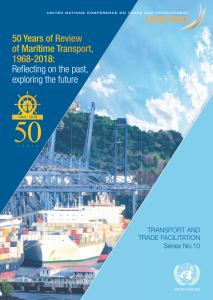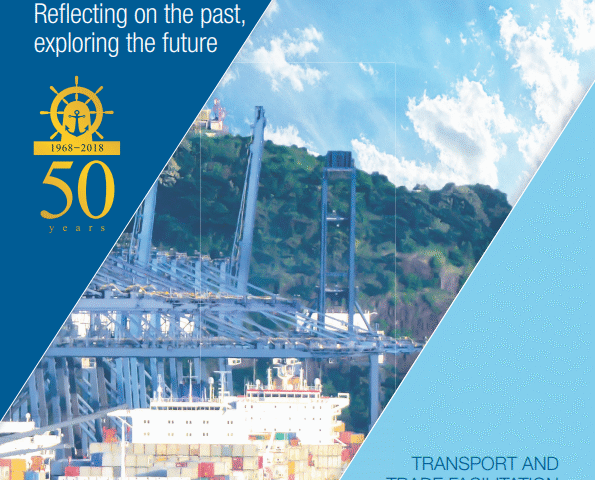 PortEconomics members Mary Brooks and Patrick Verhoeven celebrate and contribute, along with other eminent guest essayists, in the history of the Review of Maritime Transport over the past 50 years, a publication that examines the past and future of maritime transport and its part in trade and development.
PortEconomics members Mary Brooks and Patrick Verhoeven celebrate and contribute, along with other eminent guest essayists, in the history of the Review of Maritime Transport over the past 50 years, a publication that examines the past and future of maritime transport and its part in trade and development.
Mary Brooks analyses the results of a survey exploring the opinion of some UNCTAD staff, selected UNCTAD collaborators and partners, as well as International Association of Maritime Economists members on how is the future of maritime transport expected to evolve. She focuses on three drivers that that will exert pressure on the possible future differently:
- specific technologies identified in the opinion survey, and the opportunities they offer, exploring both the feedback received from the respondents to the survey and the literature on the topics identified.
- regulation- multilateral or regional, that will shape the maritime transport operational landscape and influence UNCTAD’s role and mandate and
- factors beyond control of government and business, again as identified by the respondents to the opinion survey, and discusses what is expected.
Patrick Verhoeven comments on the challenges that will shape the port sector in the next 50 years and highlights the geopolitical changes and the rise of Asia, the Indian Subcontinent and Africa, the to rationalisation of shipping lines, terminal operators and shippers operations through mergers or strategic alliances, the digitalization and automation and the decarbonization and the push towards the circular economy.
To read Mary’s and Patrick’s contribution, but also to download the 50 Years of Review of Maritime Transport, 1968–2018 publication visit UNCTAD’s website.












